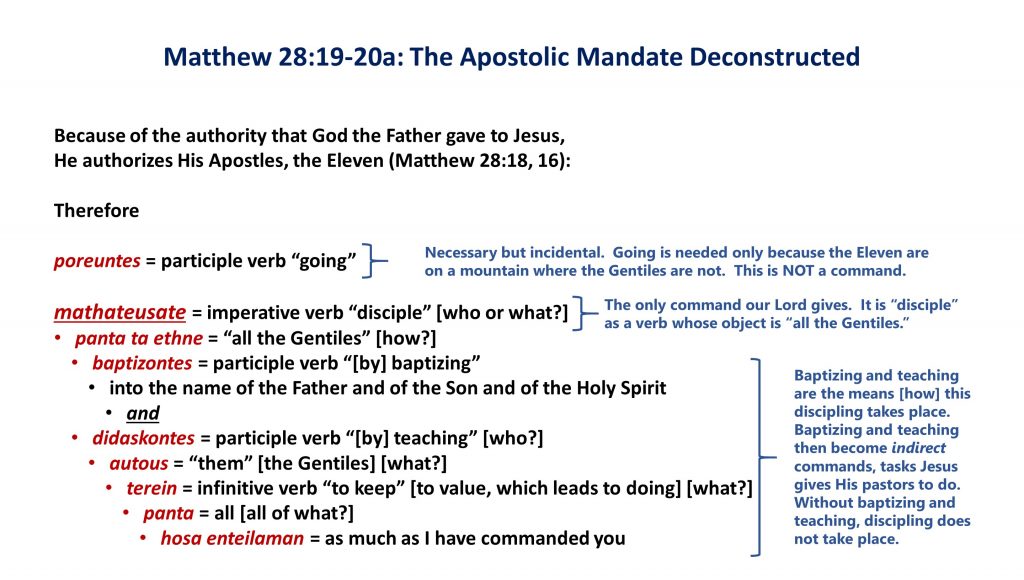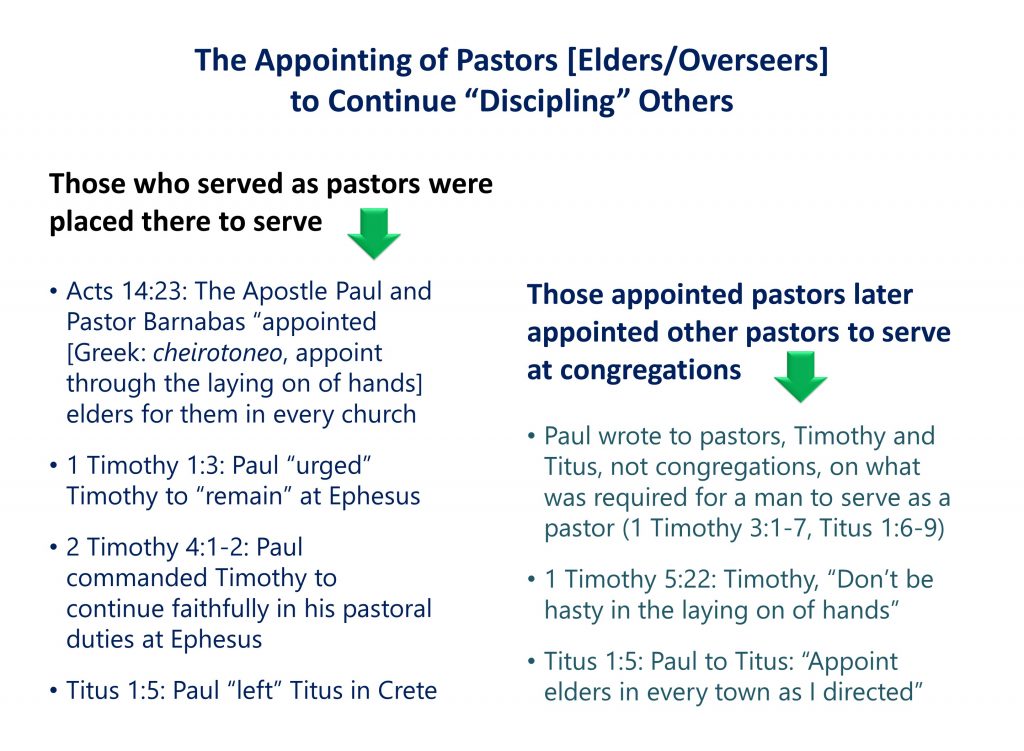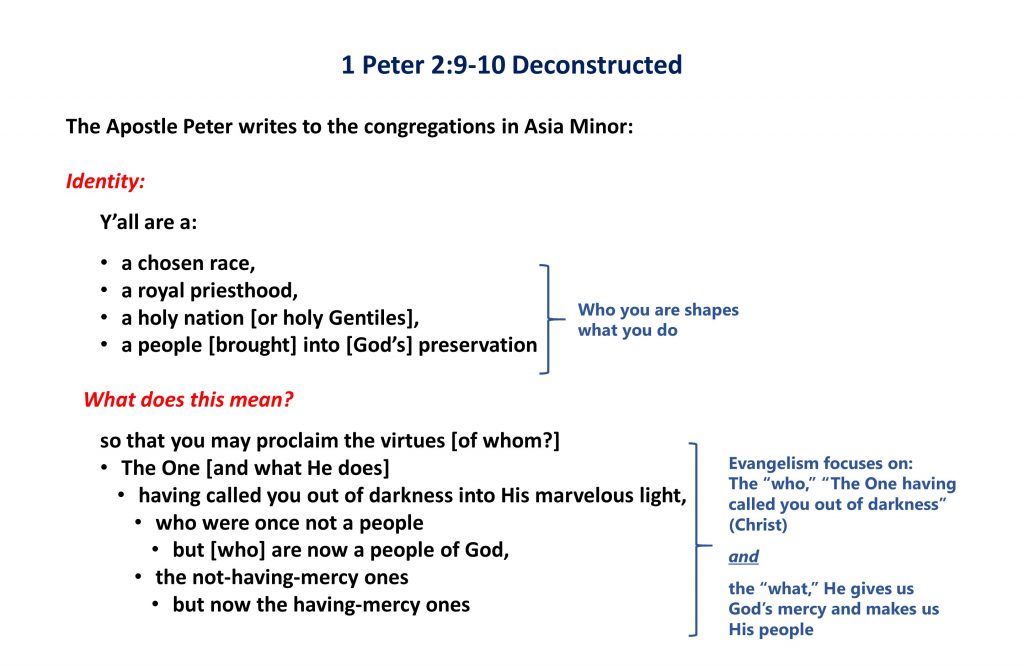 Evangel: From the Greek word euangelion, meaning “good news,” the Gospel. Although evangel means “good news,” the evangel is more than information that happens to be good. This “good news” has the power within it to do what it says.
Evangel: From the Greek word euangelion, meaning “good news,” the Gospel. Although evangel means “good news,” the evangel is more than information that happens to be good. This “good news” has the power within it to do what it says.
- Romans 1:16: I am not ashamed of the gospel [euangelion], because it is God’s power for salvation to everyone who believes: to the Jew first and also to the Greek.
But what is this “good news,” this gospel, that has the power to save?
- 1 John 2:2: Jesus is the atoning sacrifice for our sins, and not for ours only, but also for the whole world.
The Gospel is what Jesus did and does to save us—and the delivery of that salvation to another. Evangelism is then the Gospel coming to one person from another. The pastor does this in his vocation of pastor. The layperson does this in his or her various vocations.
Evangelism for the Pastor
Read Matthew 28:16-20
- How do we know Jesus was speaking to His Apostles as pastors in His Church and not only as Apostles?
Matthew 28:20b: “And remember, I am with you always [as you disciple by baptizing and teaching] until the end of the age.”
For this “discipling” to take place until the end of the age, when Jesus returns, these tasks had to pass on to the next generation of pastors. We see this passing on even taking place in Scripture.
If we are to understand our Lord’s Apostolic Mandate more broadly, we see that it is part, not all, of what Jesus gives His pastors to do until He returns.
- Discuss: If Jesus commanded His pastors to disciple others by baptizing and teaching, where are you in His mandate?
Evangelism Passages for the Layperson
Applying Scripture properly involves understanding who said what to whom. Evangelism passages for the layperson are spoken to people in the Church, not specifically to the Apostles or pastors.
Read Matthew 5:13-16
- Discuss what being does being “salt” and “light” mean?
- When and where do you “let your light shine”?
- For someone to “give glory” to the Father in heaven means what?
- What evangelizing role does your everyday vocations then take on?
Read 1 Peter 2:9-10
Evangelism for the layperson involves the interaction of words [proclaiming Jesus] and deeds [let your light shine] coming together in one’s daily vocations.
Read 1 Peter 3:14-15
- What should the Christian be prepared to do?
- To be able to “defend” the hope that you have means what about knowing it?
To be able to give a reason, to be able to defend the Christian hope [the resurrection of the body and life everlasting], means that you have to know it and can articulate it. This means being taught by the one whom Jesus has given to teach you so you can “defend the hope that you have.” Christian evangelism also includes knowing the content of the Faith in such a way that you can articulate it in your daily life.
Read Colossians 4:5-6
- In one’s everyday vocations, how does a Christian proclaim Jesus and defend his hope?
Click here to go to the next Lesson.






